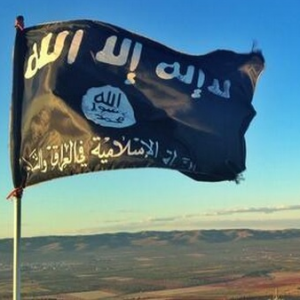 ISIS’s ruthless terrorizing of Christians (and others) is the latest global uproar causing pastors to ask the question: how do I handle this from the pulpit? This question does and will apply to other issues, but we will use ISIS as the example since it is fresh in our minds and illustrative.
ISIS’s ruthless terrorizing of Christians (and others) is the latest global uproar causing pastors to ask the question: how do I handle this from the pulpit? This question does and will apply to other issues, but we will use ISIS as the example since it is fresh in our minds and illustrative.
On the one hand, the pastor is called to confront sin and shepherd his people through difficult moral questions such as this. On the other hand, the pastor should always tread lightly in regards to politics and war theory, both for the sake of his church’s legal status and for the sake of his relationship with his people.
At the forefront, I think it’s a topic worth addressing publicly, and specifically from the pulpit. Barry Creamer, President at Criswell College, often says that the timidity of pastors in Nazi Germany is one of the greatest blots on Christian history. I think he’s right.
Dietrich Bonhoeffer, while sometimes labeled a pacifist, is applauded not simply for standing up for his Jewish neighbors; he is revered for his willingness to stand up for his Jewish neighbors to the point of execution. While perhaps non-violent, he was not pacifistic as he stared death in the face, decried the Nazi regime, and refused to recant his convictions.
We’re not all Bonhoeffer. I get that. But his bravery and boldness should be recognized over and above those pastors who either disagreed but stood by, or those who actually bought into the lie that the Nazis’ antisemitism was built on a Christian platform. There was nothing salvageable about Nazism, and there’s nothing any more salvageable about ISIS. We should, in fact, be outraged at the systematic execution of so many people, just like Bonhoeffer was in his day. And pastors in particular should show no remorse for calling evil what it is.
So to be clear, we should not as pastors (and as Christians) take a lackadaisical approach to this issue, or somehow act as though our concern here has no affect on the mission of ISIS. (And even if it tangibly doesn’t, by the way, we shouldn’t neglect reacting the right way.) People are being beheaded for confessing the same Christ we confess. That’s no small thing.
While I don’t think ISIS’s actions should be swept under the rug, I don’t think the helpful answer is to assume that a few guns and tanks are automatically going to solve this issue, either. Frankly, I don’t know what the answer is, but the Christian response should not be either extreme of “let’s see if we can talk this out” or “nuke ’em all!” Balance is always prudent in volatile, complicated matters.
So should a pastor promote war from the pulpit? Maybe, but probably not. Two thoughts:
1. The first response should be a call to prayer. When Jesus said to love your enemies and pray for those who persecute you, he really meant it. We overlook that command far too often. We also undervalue the true nature of prayer: direct connection with the Creator of the Universe. The weapon in the Christian’s arsenal that evil should fear the most is our ability to go boldly before God’s throne.
The blood of these martyrs cries out to God like Abel’s did. He knows. He cares. He’s not happy. So we should go to him first with our concerns for the oppressed and persecuted. Plead with him to intervene. Pray for peace, for justice, and for hatred to flee from our hearts.
Prayer is our best weapon and God is our closest ally. Preach that.
2. Preach biblical justice, not Call of Duty. It very well might take military action to stop ISIS from continuing this rampage. And if that’s the answer, count me in. ISIS does not seem reasonable. I don’t think bringing Émile Arnaud to the bartering table will help much. So I’m for “just war” assuming we can demonstrate that the war is just, or at least the inevitable option.
But this isn’t Call of Duty where the deceased get to re-spawn back into the game; brave men and women step off a plane and onto their deathbed in real life. War inevitably leads to casualties of innocent bystanders, as well. War is a big deal.
Now, we have a duty as Christians to seek and even enact justice at some level, but we should be careful how we handle that responsibility. Pastors have heightened responsibility as those with spiritual leadership over their congregations. What ISIS is doing is heinous, and it’s not wrong to show visible brokenness and anger over it. It’s not loving our neighbors to sit back and watch them get slaughtered, or to continually preach as if it’s not happening.
But to assume that war is automatically the answer and then pontificate that from the pulpit is unwise and unhelpful. Romans 13 reminds us that God is sovereign over kings, and that their sword is his sword. He didn’t let Cain walk away scot-free when he killed his brother. He’s shown himself faithful. Let him pull his sword when and if he’s ready.
Scripture reveals God’s particular concern for the oppressed. He’s not sitting on his hands. He’s not turning a blind eye. And, whether it seems like it or not, he’s working out all things for the good of those who love him. He will not let evil stand forever or even for long.
Non-violence might be the right action, but it might not. War might be the right action, but it might not. Preach that.












